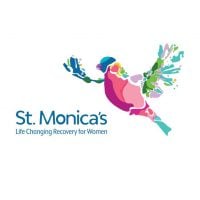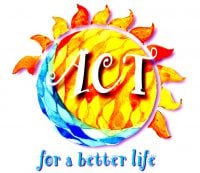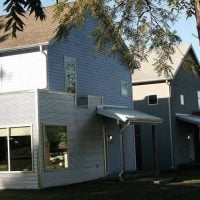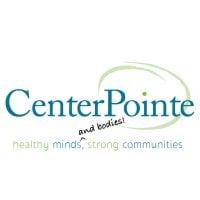Saint Monica's
Drug Rehab Center in Lincoln, Nebraska
Saint Monica's Addiction Treatment Facility in Lincoln, NE provides a comprehensive and individualized drug rehab program featuring evidence-based modalities such as cognitive behavioral therapy, psychotherapy, motivational interviewing and 12-step facilitation, while also offering specialized treatment for Alcoholism, Opioid Addiction, Substance Abuse and Dual Diagnosis problems as well as post-treatment support.
About This Lincoln, NE Facility
Saint Monica's Behavioral Health Services, located in Lincoln, NE, empowers women to feel worthy of their recovery journey. This non-profit rehab specializes in helping women become their best selves, both today and moving forward.
Embracing a compassionate approach, Saint Monica's instills hope and resilience in those seeking a path to lasting sobriety. Their mission revolves around empowering individuals to overcome challenges and reclaim their lives.
Accredited by CARF, SAMHSA, and holding a state license, Saint Monica's offers evidence-based treatments tailored to address the multifaceted nature of addiction. Their comprehensive programs incorporate cognitive behavioral therapy, contingency management, motivational interviewing, family therapy, individual and group counseling, and psychoeducation.
- Gender-specific programs address unique challenges
- Specialized care for pregnant and postpartum women
- Relapse prevention planning and life skills training
- Holistic approach addressing biological, psychological, and social needs
Saint Monica's Behavioral Health Services provides a supportive environment for women battling substance abuse disorders. Their compassionate staff guides clients through the complexities of addiction recovery, fostering lasting sobriety.
For women struggling with alcohol or drug addiction, Saint Monica's offers a comprehensive treatment program. Their experienced professionals empower clients to overcome dependencies, rebuild relationships, and develop the skills necessary for a fulfilling, sober life.
Genders
Ages
Modality
Additional
Accreditations
State License
SAMHSA

CARF
The Commission on Accreditation of Rehabilitation Facilities (CARF) is a non-profit organization that specifically accredits rehab organizations. Founded in 1966, CARF's, mission is to help service providers like rehab facilities maintain high standards of care.
Conditions and Issues Treated
Substance abuse refers to the intensive and inappropriate use of psychoactive substances. Psychoactive substances are those that affect brain function. These include illegal drugs, alcohol, and even the excessive use of prescription drugs. The overuse of psychoactive substances leads to severe physical or psychological dependence. It also affects the social life and relationships of the affected individual. Substance abuse is treatable.
The duration of treatment at Saint Monica's in Lincoln can require weeks or even months depending on the severity of the condition as there is a risk of relapse. Treatment options include medications, counseling sessions, various types of behavioral therapy, and group therapy in different combinations.
Addiction to prescription opioid painkillers like oxycodone and hydrocodone, and illicit opioids such as heroin, leads to potentially life-threatening withdrawal symptoms when discontinued. Opioid addiction treatment typically involves an inpatient stay at facilities like Saint Monica's to make sure they get through withdrawal safely. Treatment also includes comprehensive mental health counseling.
Levels of Care Offered
This center offers a variety of custom treatment tailored to individual recovery. Currently available are Aftercare Support, Drug Rehab, Inpatient, Intensive Outpatient, Outpatient, Residential, with additional therapies available as listed below.
Inpatient programs are intensive regimes that require individuals suffering from serious addictions to admit themselves into a controlled environment. Inpatient programs in Nebraska generally span over 28 days to six months. The first step in an inpatient program is medically assisted detox. Doctors and addiction specialists at Saint Monica's monitor the individual’s vital signs as the drugs leave their system. Some inpatient rehab programs also provide counseling for family members to provide encouragement and emotional support. In inpatient programs, patients have access to 24-hour medical supervision.
Daily trips to the hospital that provides the treatment include intensive outpatient services (IOP). IOP in Nebraska is appropriate for patients in residential recovery facilities that have been diagnosed with addiction. Patients return to their everyday lives gradually, increasing the likeliness of success in treatment.
To assist with alcohol or opioid abuse, or a co-occurring condition, Saint Monica's offers an outpatient treatment program. For their rehabilitation and other services, the Nebraska patient will go to the treatment center, yet return home every night. After most of the program is completed, the level of mandatory participation reduces.
Residential treatment programs are those that offer housing and meals in addition to substance abuse treatment. Rehab facilities that offer residential treatment allow patients to focus solely on recovery, in an environment totally separate from their lives. Some rehab centers specialize in short-term residential treatment (a few days to a week or two), while others solely provide treatment on a long-term basis (several weeks to months). Some offer both, and tailor treatment to the patient’s individual requirements.
Treatment is just a first step in sustaining sobriety. After rehabilitation, counseling for aftercare helps the person adapt to a life without drugs. A sober living facility in Lincoln, job therapy, or educational assistance may be included in this service, managed by Saint Monica's. This is when a preventive strategy for relapse starts to take shape.
Saint Monica's‘s Therapies & Programs
In addiction recovery at Saint Monica's, therapy plays a significant role. This helps patients get to the root of their addiction and discover how the problems that contributed to their use can be handled better. Therapy can be performed in a group and one on one settings. The patient interacts with the therapist in a one-on-one atmosphere during individual therapy. This encourages them to reflect on the underlying addiction problems and develop ways to avoid potential future abuse.
Recovering from addiction involves recovering relationships as well. One of the most common areas of stress and damage during addiction is in intimate relationships. Couples therapy at Saint Monica's can rebuild trust and joy that may have been damaged. Addiction involves everyone in the family, not only the addict.
Family roles can change in damaging ways that may require professional help to rebalance. Successful intimate relationships can decrease the chances for relapse by ensuring a healthy environment after rehab in Lincoln, NE.
Addiction and alcoholism affect the entire family. For this reason, family therapy is vital to a person’s recovery from addiction. In contrast to couples counseling, family therapy at Saint Monica's may include siblings, children, parents, and other significant people in the recovering person’s life. Family support is one of the most important pillars of recovery.
Many people turn to drugs and alcohol as a way of processing trauma that has affected them in the past. Trauma can include abuse, neglect, the loss of a loved one and other unpleasant incidents. Trauma therapy at Saint Monica's helps patients process trauma. It gives them the tools to deal with it in a healthier manner.
Dialectical behavioral therapy (DBT) is a type of Cognitive Behavioral Therapy that focuses on eliminating specific negative thoughts such as suicidal thoughts that can potentially lead to an individual inflicting self-harm. It is useful in the treatment of patients exhibiting uncontrollable emotions, intense mood swings, and borderline personality disorders.
The term “Dialectic” means the integration of opposites. In the substance abuse context, DBT refers to accepting the patient’s addiction and working to change their thoughts and behavior. It improves life skills such as controlling the intense emotions without reacting impulsively, resolving the interpersonal conflicts effectively, and promoting awareness about self and others.
Cognitive Behavioral Therapy (CBT) examines the relationship between a patient’s thoughts, feelings and behaviors. Saint Monica's aims to establish a healthy response to thoughts and feelings as an alternative to turning to drugs and alcohol. It also promotes healthy communication between addicts and those around them. It is and effective therapy for people suffering with all types of addictions.
Rational Emotive Behavior Therapy (REBT) is a type of cognitive therapy. It is based on the principle that irrational thoughts are responsible for the emotional and behavioral changes in addiction. So, the therapy starts with identifying the underlying irrational thoughts. These thoughts are then challenged and opposed logically and then replaced with positive thoughts. It also helps to change unwanted behavior with techniques such as meditation.
By imparting positive thoughts and emotions, Rational Emotive Behavior Therapy (REBT) makes the individual self-reliant with a capacity to handle the emotional and behavioral issues in future by themselves without professional help. This self-dependence benefits the patients and prevent relapses.
EMDR therapy is combined with behavioral therapies to address the root cause of the problem. The rapid eye movements reduce the patients’ negative feelings related to the trauma and promote calmness and relaxation.
Life skills pertain to the skill sets a person should possess to become successful in life. Examples are time management, budgeting, and social abilities. Life skills therapy highlights the fact that addiction recovery is more than just a person’s ability to go through their day-to-day without resorting to substance use in Lincoln, NE once they leave the facility.
The recovery technique used by Alcoholics Anonymous is the 12 step program, but it can relate to any form of addiction. The 12 steps that addicts must take on the road to recovery are explained. Measures include acknowledging that you have a problem and agreeing to turn around your life. The curriculum, instructed by Saint Monica's, also requires a belief in a greater power and making amends to others.
Contingency Management (CM), also called motivational incentives, is a type of pure behavioral therapy. It’s based on the idea that behavior is shaped, motivated, or controlled by its outcomes. CM is a clinical application at Saint Monica's of operant conditioning, which helps clients eliminate unwanted behaviors by the use of positive and negative reinforcement.
Patient Experience
Creative Arts
For those combating addiction recovery in Lincoln, NE, creative arts therapy, or expressive therapy, is advantageous. Reading, music, theater, art, and other types of self-expression may be included. Saint Monica's uses this to enhance the mental state of the patient and help them to focus on something other than addiction. It helps patients to explore how, through the creative process, their thoughts and emotions play out.
Experiential Therapy at Saint Monica's
Experential therapy is a unique type of therapy that deals with the subconscious mind. This treatment available at Saint Monica's in Lincoln, NE encourages individuals to work out their issues with their inner self through synchronous experiences.
This non-traditional treatment method makes use of the physique and encourages people to take part in various physical and emotional activities, movements, and practices. Some of the most common examples of experiential therapy are equine therapy, music therapy, adventure therapy, and role playing. Through these various methods, an individual is believed to heal from trauma, negative emotions, and hurtful memories faster. Moreover, experiential therapy is known to have enduring results which can be beneficial to sufferers.
Payment Options Accepted
For specific insurance or payment methods please contact us.
Is your insurance accepted?
Ask an expert, call (888) 674-0062
Additional Details
Specifics, location, and helpful extra information.
Lincoln, Nebraska 68510 Phone Number(402) 441-3768 Meta DetailsUpdated April 15, 2024
Staff Verified
What else do people call Saint Monica’s?
People have occasionally also searched for “Saint Monica's Behavioral Health Services in Nebraska”
Patient Reviews
There are no reviews yet. Be the first one to write one.
Lincoln, Nebraska Addiction Information
Despite a total population of slightly less than 2 million residents, methamphetamines are one of the most commonly abused illicit substances in the state. Alcohol abuse is so common that a news article once referred to Nebraska as "America's 9th drunkest state". Although opioid abuse rates in Nebraska are not as high as those in other states, opioids are still involved in most overdoses.
The drug addiction problem in Lincoln, Nebraska is one of the worst in the country. Stimulants, particularly methamphetamine, are the most prevalent drug substances, while marijuana accounted for 27%. Some people may start using drugs to cope with their problems or search for fleeting happiness. Many drug rehab facilities in Lincoln will provide counseling services in addition to medication management, and other necessary treatments.
Treatment in Nearby Cities
- Fairbury, NE (54.6 mi.)
- Crete, NE (22.0 mi.)
- Scottsbluff, NE (372.9 mi.)
- Baton Rouge, NE (780.2 mi.)
- Lexington, NE (163.3 mi.)
Centers near Saint Monica's
The facility name, logo and brand are the property and registered trademarks of Saint Monica's, and are being used for identification and informational purposes only. Use of these names, logos and brands shall not imply endorsement. RehabNow.org is not affiliated with or sponsored by Saint Monica's.









